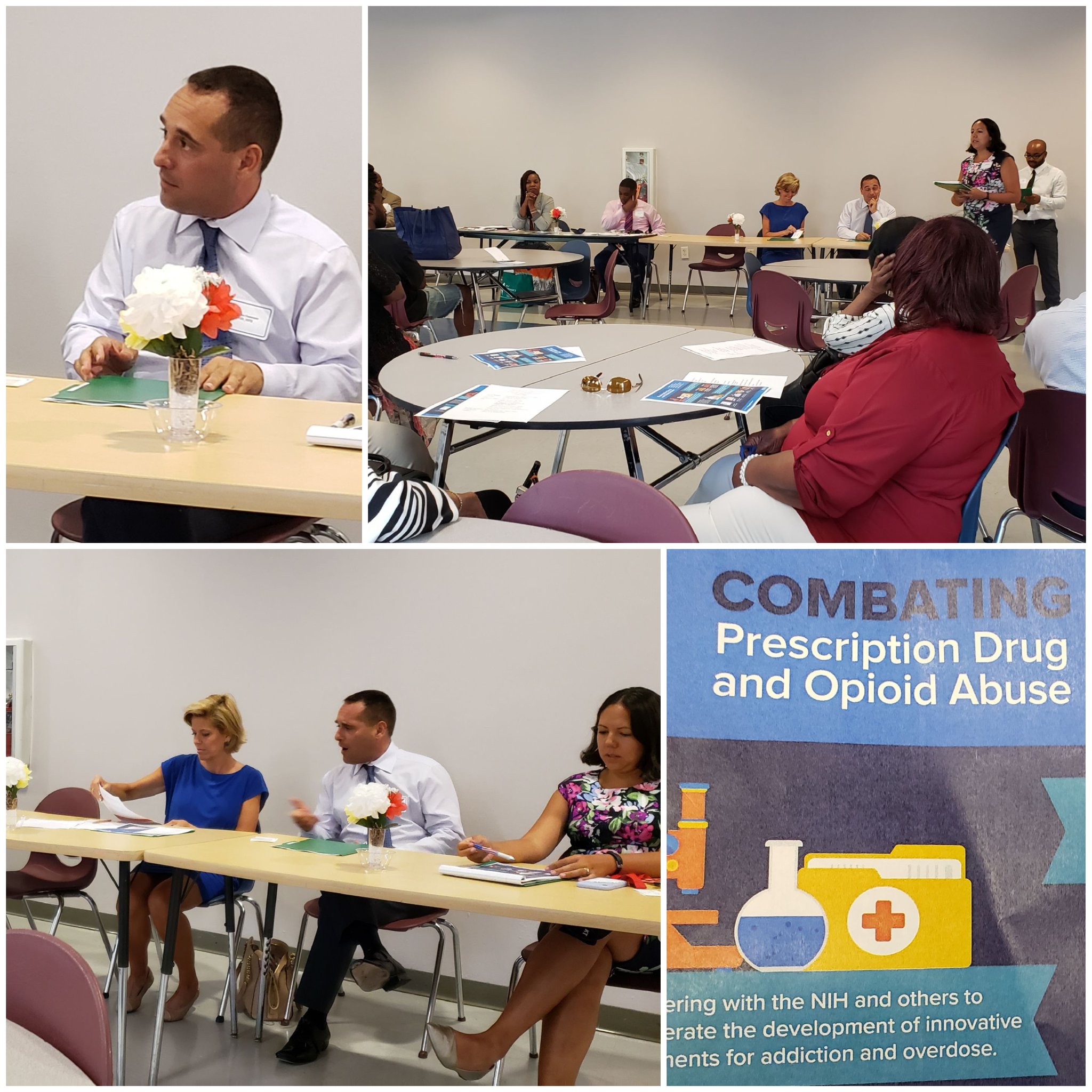Opioid Policies

Much like the rest of the United States, residents of the District of Columbia are struggling with substance use disorder (SUD) rate increases and high rates of opioid-related deaths. Unfortunately, these are multi-faceted issues that require year-long initiatives and systematic programs to address the myriad causes of addiction.
MSDC stands as a partner to the District government and private entities to help arrest the rates of opioid and substance abuse in the District. Through our advocacy for better prescribing practices, education on addiction, and even helping our own community through our Physician Health Program, MSDC is working to make DC a leader in reducing SUD, OUD, and addiction.
On a related note, MSDC is passionate about helping patients make prescriptions and medication more affordable. Whether expanding access to biosimilars or advocating for more affordable co-pays, MSDC wants to help our patients afford the medications they need.
MSDC Statement and Testimony on Opioid and Prescription Issues
25th Council information coming soon
Congress Considering Reducing DC Medicaid Match - Why You Need to Pay Attention
UPDATES: MSDC has joined two letters on Medicaid reform - one with other state medical societies and one with DC healthcare associations.
Summary: Reducing DC's FMAP from 70% to 50% will reduce reimbursements and harm the DC Medicaid program.
The issue: As part of deliberations on how to cut government spending, House Republicans have included a proposal in their "wish list" to reduce the DC's FMAP from 70% to 50%. The 70% match is federal law, so the proposal would be to change the law to align DC with every other state's minimum 50% minimum. The change, per the document, would "save" the federal government $800m a year, or $8b over ten years.
The Concern: Removing $800m a year from federal dollars into the District's Medicaid program would require major changes, including reimbursement cuts to providers, reduced benefits, and scaled back eligibility. DC may also need to consider revenue raisers to close gaps. This would also be on top of other changes to Medicaid and new DC funding pressures.
How to remain involved: Sign up for MSDC's new advocacy alerts here. Contact your member of Congress (if you live in Maryland or Virginia) to urge them to resist any cuts. Contact members of Congress and staff you know to educate them on this issue.
Background: The federal Medicaid match rate, also known as the Federal Medical Assistance Percentage (FMAP), determines the proportion of Medicaid costs that are covered by the federal government versus the state or district government. The FMAP can vary across states and territories based on factors such as per capita income.
DC has a different minimum match by law for specific reasons. After Congress removed the control Board and began re-establishing some home rule in the 1990s, it had to address a financially unique situation. A GAO report explains:
Under the Revitalization Act, the federal government assumed financial and administrative responsibilities for one of the District’s largest fiscal burdens, which it inherited from the federal government as part of the transition to Home Rule in 1973—its unfunded pension liability for vested teachers, police, firefighters, and judges. In 1998, the federal government assumed the accrued pension cost of $3.5 billion that existed at the close of 1997. The District remains responsible for funding benefits for services rendered after June 30, 1997, and continues the plan under substantially the same terms. In addition, the Revitalization Act was part of a larger act— the Balanced Budget Act of 1997—that increased the federal share of District Medicaid payments from 50 to 70 percent.
Prior to the Revitalization Act, the District had been receiving a federal payment since the mid-1800s due to the District’s unique relationship with the federal government. The Congress recognized that the District’s ability to raise revenues was affected by a number of legal and practical limitations on its authority—the immunity of federal property from taxation; the building height restriction, which has a limiting effect on commercial property values; the prohibition on the District from passing a law to tax the income of nonresidents; and the restriction on imposing sales taxes on military and diplomatic purchases.
Due to these revenue restrictions, federal law permits enhanced reimbursement. At this point, according to the DC Fiscal Policy Institute, Medicaid and federal grants are 25% of District revenue.
Sample of Legislation MSDC Tracked on Opioid and Prescription Policy
What does it do? The bill authorizes licensed pahrmacists to dispense interchangeable biological products and requires notifications to physicians when such interchangeables are dispensed.
MSDC position: MSDC has a position of priority support on this legislation, identifying its passage as one of its highest legislative priorities.
Current status: SUCCESS. The bill was passed by the Council and signed by the Mayor.
What does it do? The bill requires prescription opioid medications to include a statement that the drug is an opioid and opioids may cause dependence, addiction, or overdoes.
MSDC position: MSDC supports the legislation.
Current status: The bill had a hearing before the Committee on Health on July 29, 2020. MSDC leader Dr. Sam Kareff testified for the Medical Society. It passed the Council on November 10 and was signed by the Mayor December 7.
What does it do? The bill prohibits insurance companies from factoring the use of PreP in decisions related to disability, life, or long-term care policies.
MSDC position: MSDC supports this legislation
Current status: The bill was introduced on January 8, 2019 and assigned to the Committee on Business and Economic Development.
